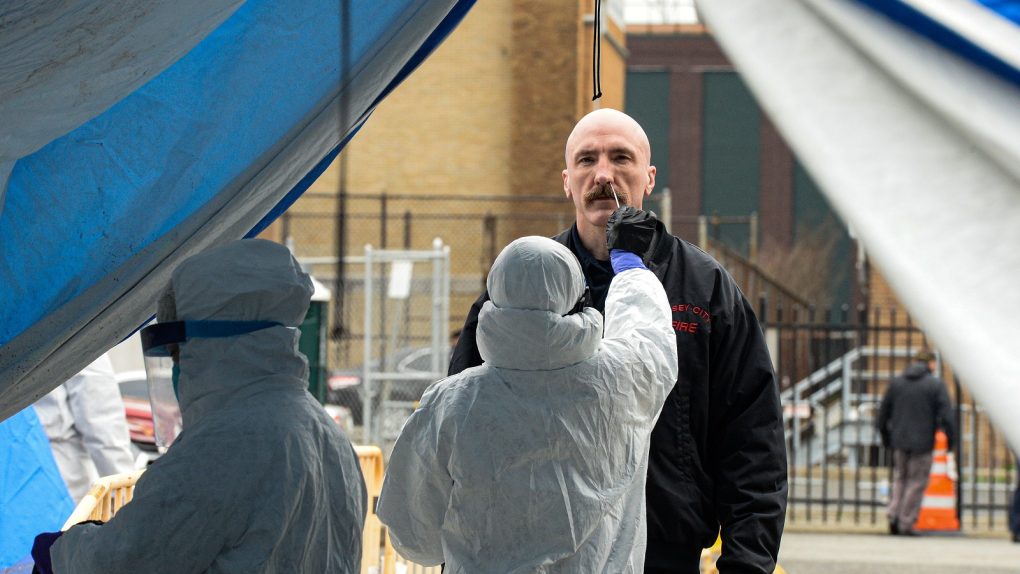- Researchers discovered a COVID-19 patient who shed the novel coronavirus for 70 days without showing any symptoms during the period.
- The patient suffered from a form of leukemia, which might explain why the immune system could not mount a proper response that would have cleared the virus.
- Immunosuppressed patients risk infections like COVID-19 and may experience unique complications because they have a harder time fighting pathogens.
A large proportion of the people who contract the novel coronavirus get an asymptomatic version of COVID-19. Crucially, experts say that asymptomatic people do not spread the virus as much as people who exhibit symptoms. But the COVID-19 patients who do start showing symptoms are infectious a few days before the onset of symptoms. They can spread the illness by shedding the virus during the presymptomatic phase of the illness, at a time they might think they’re perfectly healthy. But as COVID-19 recovery progresses, patients stop shedding the virus, with experts saying that people with mild to moderate illness will stop shedding the virus 8-9 days after the onset of symptoms.
A new study now says there’s a particular category of patients who might spread the illness a lot longer than that, without ever showing any symptoms. The researchers found a patient who tested positive for the novel coronavirus for up to 105 days and was still infectious 70 days after the first positive test.
As ScienceDaily explains, PCR tests detect the presence of SARS-CoV-2 RNA in samples. But that RNA might not always be viable, especially if collected in the final days of a regular course of COVID-19. For this study, the researchers actually tested the samples to see if the virus on the swab would still be able to infect lab-grown cells. And that’s how they found that this particular patient was still infectious after 70 days.
“This indicates that, most likely, the infectious virus shed by the patient would still be able to establish a productive infection in contacts upon transmission,” the scientists said.
What allowed the virus to survive for so long was a preexisting condition in the host. The 71-year-old patient has chronic lymphocytic leukemia (CCL). That’s a form of slow-progressing white blood cell cancer that impacted her immune response. The white blood cells, like the T cells that are mentioned in plenty of COVID-19 immunity studies, are involved in immunity processes. The woman was diagnosed with CCL 10 years ago, and researchers believe that immunocompromised patients like her might shed the virus for much longer than others.
ScienceAlert points out that approximately 3 million people in the US suffer from a condition that compromises the immune system, making them more vulnerable to infection. The list includes cancer patients on chemotherapy and transplant recipients who might be on immunosuppressants.
People with compromised immune systems might experience a more severe COVID-19 case as well, but that didn’t happen to the patient in this study. She first tested positive on March 2nd, after she was admitted to the hospital for severe anemia related to cancer. She had no COVID-19 symptoms. Doctors suspect the woman was infected at some point in February while at a rehabilitation facility that experienced a large outbreak.
The patient then tested positive 13 more times without showing symptoms. She got plasma transfusions from others who survived the illness and eventually cleared the virus by mid-June, although RNA traces continued to appear in samples for another 35 days. This person may have been infectious for even longer than 70 days, considering the probable date of infection. According to the researchers, this is “the longest case of anyone being actively infected with SARS-CoV-2 while remaining asymptomatic.”
While these cases might be rare, patients who are infectious for months without experiencing any symptoms can unknowingly pass the virus to countless people.
Interestingly, the scientists sequenced the genome from various samples collected from the patient to see whether the virus had mutated at all. They observed different variants of the virus, with some of them becoming more dominant at times. But none of those strains stuck because the turnover was high.
More research is required to explain why some patients might carry and spread the virus for longer periods of time. This particular case study is available in Cell magazine.








